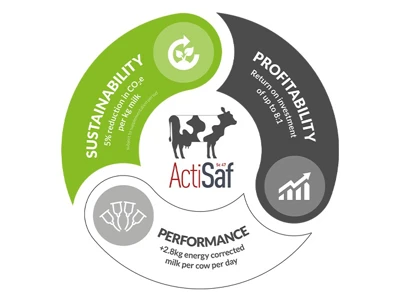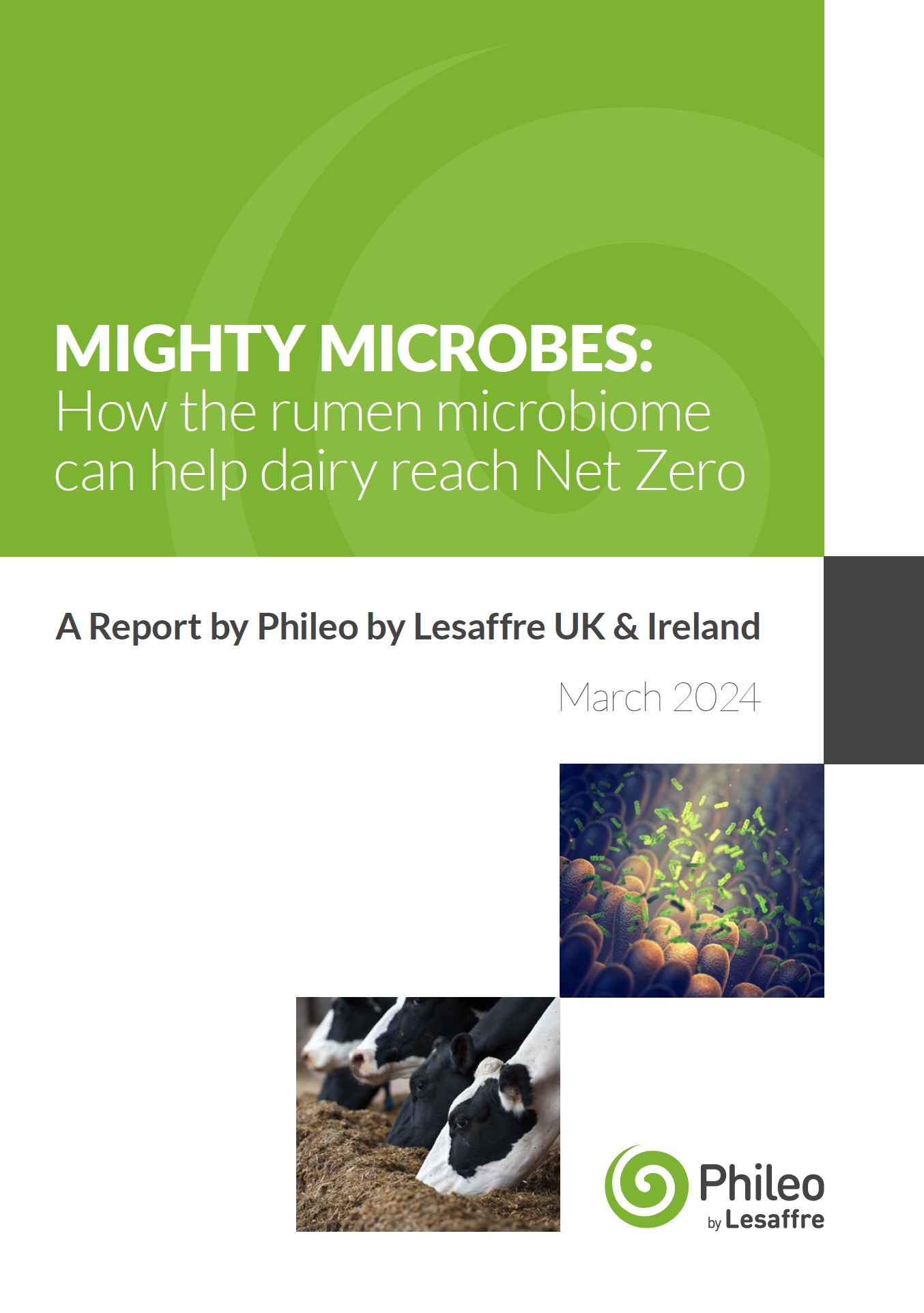Actisaf® confirmed to reduce milk carbon footprint by 5%
Following rigorous testing, Actisaf® Sc 47 live yeast, a Phileo by Lesaffre product, has been proven to result in a 5% reduction in CO2e per kg milk (subject to supplementation).


This outcome was determined using a full life cycle assessment (LCA) of the product performed by Dutch international agri-food LCA specialists Blonk, which was independently and critically reviewed by industry experts following ISO (14040/44), the required standard for any product claiming an LCA.
The probiotic achieves this reduction primarily by altering the rumen environment to support the growth of lactic acid-utilising bacteria and microbial species that aid fibre digestibility. This stabilises rumen pH and improves feed conversion efficiency of cows by 4.5%, resulting in an extra 2.8kg energy corrected milk per cow per day, with no increase in feed intakes or negative impacts on health parameters or body condition.
With ever increasing costs of inputs, Actisaf® also brings a welcome return on investment of 8:1, at an approximate cost as low as £15/cow/year.
An LCA assesses the environmental impacts of a product or solution and is a gold standard when it comes to proving environmental efficiency. The process also takes a myriad of environmental factors into account including climate change, water eutrophication, resource depletion, land use, acidification and water scarcity.
Kevin Doyle, technical manager at Phileo by Lesaffre UK & Ireland, said: “We have always known Actisaf® is effective at optimising rumen function and improving feed efficiency. However, we wanted to go further and prove the environmental benefit of those performance gains as well.
“What was most important to us was ensuring that the process used was gold standard, which is why we chose this methodology to determine and independently verify its environmental impact. There is already a lot of greenwashing around this topic, and we wanted these results to be irrefutable.
“By 2050, 9 billion people globally will need to be fed while limiting global warming to an increase of 1.5°C, and demand for animal products is predicted to rise by 70% by 2050. Products like Actisaf® that help address climate pressures as well as improve food production can ensure the continuation of animal protein production across the world,” said Kevin.
“With its relatively low cost, ease of use on farm and proven ROI, incorporating Actisaf® into dairy rations allows farms to stay profitable while also offering sustainability benefits and helping to de-carbonise the dairy sector.”
Learn more by...
- Clicking the image to read our white paper discussing the rumen microbes' role in reaching Dairy Net Zero.
- Watching our video below
Related News
Introducing Digescan™
Learn about Phileo's tool for measuring fibre digestion on farm!
Phileo expands British ruminant technical team
Phileo by Lesaffre UK & Ireland welcomes Thomas Gerrard as the newest member of their technical team, joining the company as Ruminant Technical Sales Specialist for Great Britain.

